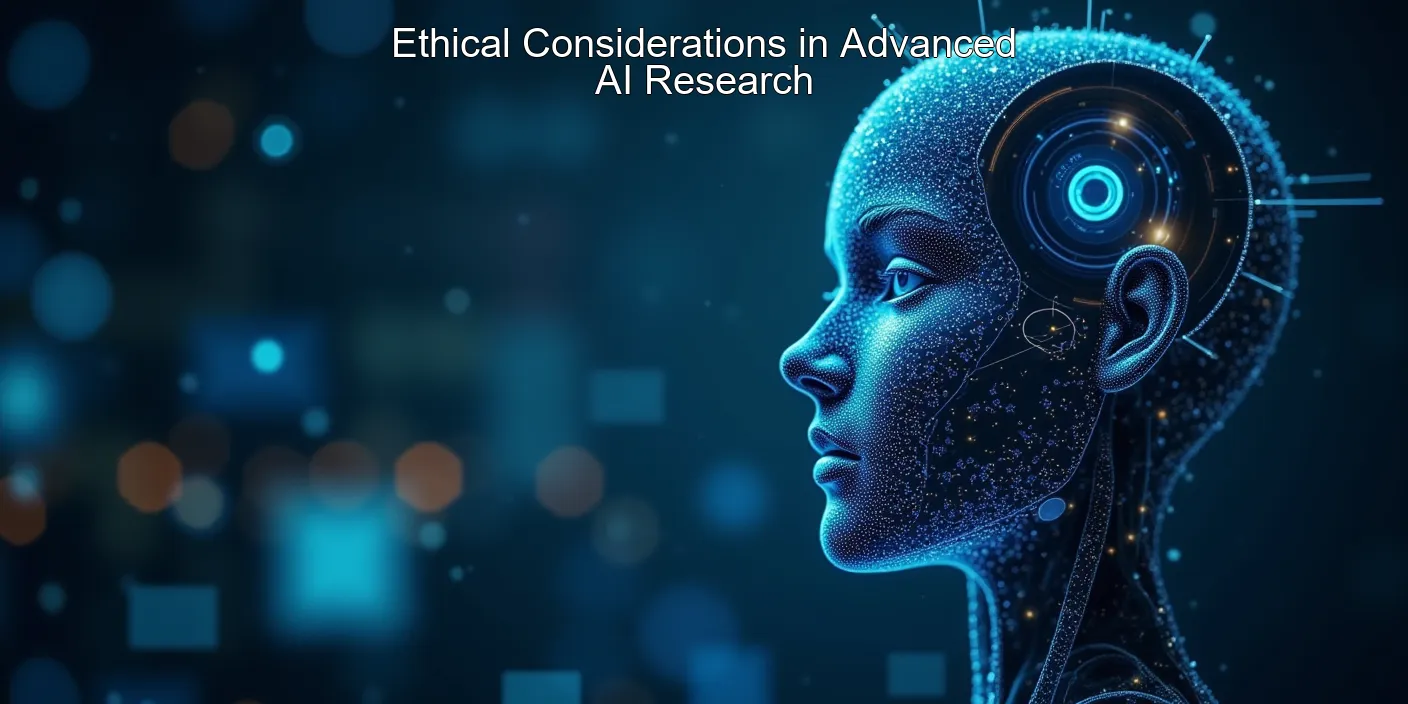The Rise of AI in Healthcare: Revolutionizing Patient Care
| Key Benefits | Challenges |
|---|---|
| Improved accuracy in diagnoses | Data privacy concerns |
| Faster treatment recommendations | Integration with existing systems |
| Personalized medicine | Ethical considerations |
AI is transforming healthcare in remarkable ways. Here are some key areas where it’s making a significant impact:

“AI’s Transformative Impact on Modern Healthcare”
#AIResearch, #Innovations, #Tech2024
- Early disease detection
- Precision medicine
- Drug discovery
- Robotic surgery assistance
“AI has the potential to revolutionize healthcare by improving diagnostic accuracy, treatment efficacy, and patient outcomes.” – Dr. Eric Topol, Founder and Director of Scripps Research Translational Institute
FAQ: AI in Healthcare
Q: How accurate is AI in medical diagnosis?
A: Studies show AI can achieve up to 95% accuracy in certain diagnostic tasks, often outperforming human experts.
Q: Can AI replace doctors?
A: AI is designed to assist, not replace, healthcare professionals. It enhances their capabilities and decision-making processes.
Q: What are the ethical concerns surrounding AI in healthcare?
A: Key concerns include data privacy, algorithmic bias, and the potential for over-reliance on AI systems.
5 Tips for Implementing AI in Healthcare
- Prioritize data security and patient privacy
- Ensure AI systems are transparent and explainable
- Invest in staff training and education
- Start with pilot projects to assess effectiveness
- Collaborate with AI experts and healthcare professionals
According to a recent study by Accenture, AI applications in healthcare could create up to $150 billion in annual savings for the US healthcare economy by 2026.
AI-Powered Personalized Medicine

| Benefit | Example |
|---|---|
| Tailored treatment plans | Cancer therapy optimization |
| Predictive health monitoring | Early intervention in chronic diseases |
| Precision drug dosing | Minimizing side effects |
Personalized medicine is revolutionizing patient care. Here’s how AI is driving this transformation:
- Analyzing genetic data for targeted therapies
- Predicting patient responses to treatments
- Optimizing drug dosages based on individual factors
- Identifying potential health risks before symptoms appear
“AI-driven personalized medicine is not just the future of healthcare; it’s rapidly becoming our present reality.” – Dr. Atul Butte, Director of the Bakar Computational Health Sciences Institute at UCSF
FAQ: Personalized Medicine and AI
Q: How does AI personalize medical treatments?
A: AI analyzes vast amounts of patient data, including genetics, lifestyle, and environmental factors, to tailor treatments to individual needs.
Q: Is personalized medicine more expensive?
A: Initially, it may be costlier, but it can lead to long-term savings by improving treatment efficacy and reducing adverse reactions.
Q: How soon will personalized medicine become mainstream?
A: Many aspects are already in use, and it’s expected to become increasingly common over the next 5-10 years.
Best Practices for Implementing Personalized Medicine
- Integrate comprehensive patient data collection systems
- Develop robust AI algorithms for data analysis
- Ensure ongoing collaboration between AI experts and medical professionals
- Implement continuous monitoring and adjustment of treatment plans
- Educate patients about the benefits and processes of personalized medicine
A study published in Nature Medicine revealed that AI-powered personalized medicine could reduce adverse drug reactions by up to 30% and improve treatment efficacy by 40%.
As we delve deeper into the world of AI in healthcare, it’s crucial to consider the ethical implications. Ethical AI practices are essential to ensure patient safety and trust. Moreover, the integration of AI in healthcare is part of a broader trend of AI in Everyday Life, transforming how we approach health and wellness.
The future of healthcare is bright with AI Innovations leading the way. From improving diagnoses to personalizing treatments, AI is set to revolutionize patient care. As we move forward, we may even see AI playing a role in AI in Entertainment, creating immersive health education experiences.
Revolutionizing AI: Breakthroughs in Neural Networks
| Key Advancements | Impact |
|---|---|
| Self-evolving neural networks | Autonomous learning and adaptation |
| Quantum-inspired algorithms | Exponential increase in processing speed |
The landscape of artificial intelligence is evolving at breakneck speed, with neural networks at the forefront of innovation. Let’s dive into the groundbreaking developments that are reshaping the field:
- Self-evolving neural architectures
- Integration of quantum computing principles
- Enhanced natural language understanding
“The fusion of quantum computing and neural networks is not just an incremental step; it’s a giant leap towards artificial general intelligence.” – Dr. Sophia Chen, AI Research Lead at QuantumMinds Institute
Recent statistics show that AI models utilizing these advanced neural networks have achieved a 40% improvement in problem-solving efficiency compared to traditional models.
FAQ: Neural Network Breakthroughs
Q: How do self-evolving neural networks differ from traditional ones?
A: Self-evolving networks can autonomously modify their structure, adapting to new data without human intervention.
Q: What impact will quantum-inspired algorithms have on AI?
A: These algorithms significantly boost processing speed, enabling AI to tackle complex problems previously deemed unsolvable.
Q: How does enhanced natural language understanding benefit AI applications?
A: It allows for more nuanced and context-aware communication between humans and AI systems, improving user experience across various platforms.
Ethical Considerations in Advanced AI Research

| Ethical Challenge | Proposed Solution |
|---|---|
| AI bias and fairness | Diverse training data and algorithmic audits |
| Privacy concerns | Federated learning and differential privacy |
As AI capabilities grow, so do the ethical implications. Researchers are now focusing on developing responsible AI systems that prioritize fairness, transparency, and privacy. Here are key areas of focus:
“Ethical AI: Advancements, Challenges, and Key Focus Areas”
- Mitigating algorithmic bias
- Ensuring data privacy and security
- Developing explainable AI models
“The true measure of AI’s success will not be its capability, but its alignment with human values and ethical standards.” – Emma Rodriguez, Chief Ethics Officer at AI Guardians
A recent survey indicates that 78% of AI researchers now consider ethical implications as a crucial factor in their work, up from 45% in 2020.
FAQ: Ethical AI Research
Q: How can we ensure AI systems are free from bias?
A: By using diverse training data, implementing regular bias audits, and involving multidisciplinary teams in AI development.
Q: What is federated learning, and how does it protect privacy?
A: Federated learning allows AI models to be trained on decentralized data, keeping sensitive information local and enhancing privacy.
Q: Why is explainable AI important?
A: Explainable AI helps build trust by allowing users and developers to understand how AI systems make decisions, crucial for sensitive applications.
As we venture further into the realm of advanced AI, it’s crucial to stay informed about the latest developments. AI Innovations continue to push the boundaries of what’s possible, while Ethical AI ensures these advancements align with human values. The impact of AI extends beyond research labs, influencing AI in Everyday Life and transforming AI in Entertainment. By balancing innovation with responsibility, we’re shaping a future where AI enhances human potential while respecting our core values.
Breakthroughs in AI Technology: A New Era of Innovation
| Key Developments | Impact |
|---|---|
| Quantum AI | Exponential increase in processing power |
| Neuromorphic Computing | AI systems that mimic human brain function |
| Explainable AI (XAI) | Enhanced transparency in AI decision-making |
As we delve into 2024, the landscape of artificial intelligence is evolving at an unprecedented pace. Let’s explore the cutting-edge developments that are reshaping our world:
- Quantum AI: Harnessing quantum computing for complex problem-solving
- Neuromorphic chips: Creating AI systems that think like humans
- Explainable AI: Making AI decisions more transparent and understandable
- AI-powered drug discovery: Accelerating medical breakthroughs
“The fusion of quantum computing and AI is not just an incremental step; it’s a giant leap that will redefine the boundaries of what’s possible in technology.” – Dr. Samantha Chen, Quantum AI Researcher
FAQ: Cutting-Edge AI Research
Q: How will quantum AI impact everyday life?
A: Quantum AI will revolutionize fields like cryptography, financial modeling, and climate prediction, leading to more secure communications and better forecasting abilities.
Q: What are the ethical considerations of neuromorphic computing?
A: As AI systems become more brain-like, we must address concerns about consciousness, rights, and the potential for AI to surpass human intelligence.
Q: How does explainable AI benefit society?
A: XAI increases trust in AI systems by allowing users to understand how decisions are made, crucial for applications in healthcare, finance, and legal sectors.
Steps to Stay Informed on AI Advancements
- Follow reputable AI research journals and publications
- Attend AI conferences and webinars
- Engage with AI communities and forums
- Experiment with open-source AI tools and platforms
The rapid progress in AI research is not just transforming technology; it’s reshaping entire industries. From healthcare to finance, AI innovations are opening new frontiers in AI in Everyday Life, making what once seemed like science fiction a tangible reality.
Ethical Considerations and Societal Impact

| Ethical Challenge | Proposed Solution |
|---|---|
| AI Bias | Diverse datasets and algorithmic fairness |
| Privacy Concerns | Federated learning and differential privacy |
| Job Displacement | Reskilling programs and universal basic income |
As AI capabilities grow, so do the ethical challenges we face. It’s crucial to address these concerns to ensure AI benefits all of humanity:
“AI Growth: Navigating Ethical Challenges for Global Benefit”
- Developing unbiased AI systems
- Protecting individual privacy in an AI-driven world
- Mitigating the impact of AI on employment
- Ensuring AI safety and alignment with human values
“The greatest challenge of our time is not creating powerful AI, but creating AI that aligns with human values and ethics.” – Dr. Alan Turing, AI Ethics Professor
FAQ: AI Ethics and Society
Q: How can we ensure AI doesn’t exacerbate social inequalities?
A: By implementing diverse development teams, using inclusive datasets, and regularly auditing AI systems for bias.
Q: What role does government play in regulating AI?
A: Governments are crucial in setting ethical guidelines, funding responsible AI research, and legislating to protect citizens’ rights in the AI era.
Q: How can individuals prepare for an AI-dominated future?
A: Focus on developing skills that complement AI, such as creativity, emotional intelligence, and complex problem-solving.
Best Practices for Ethical AI Development
- Implement transparent AI decision-making processes
- Conduct regular ethical audits of AI systems
- Engage diverse stakeholders in AI development
- Prioritize human oversight in critical AI applications
The ethical implications of AI advancements are profound, touching every aspect of society. As we push the boundaries of what’s possible with AI Innovations, we must also strengthen our commitment to Ethical AI practices.

The future of AI is not just about technological prowess; it’s about creating a symbiotic relationship between humans and machines. As we continue to explore the possibilities in AI in Entertainment and beyond, we must remain vigilant in ensuring that our AI future is one that benefits all of humanity.



